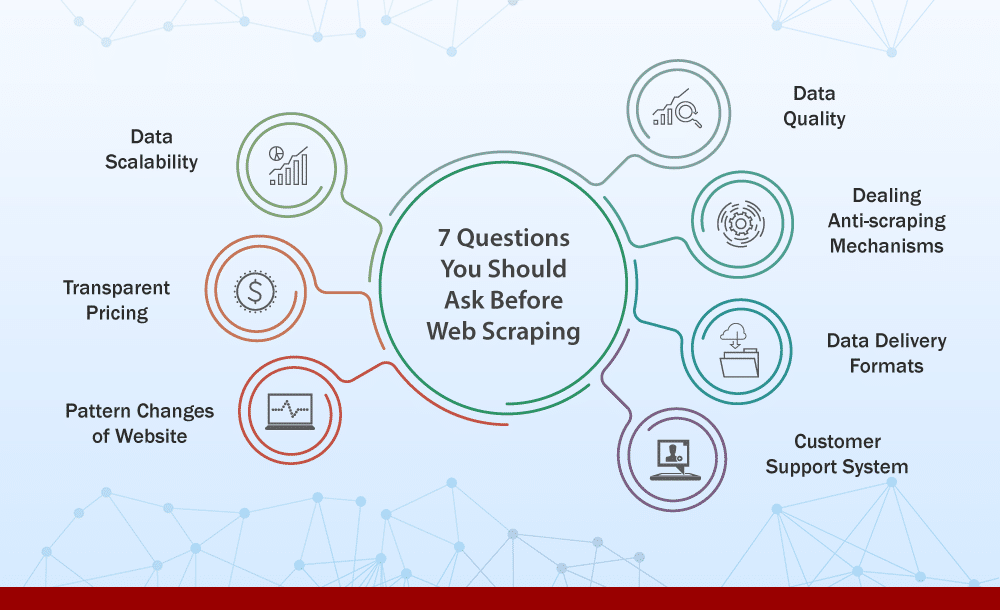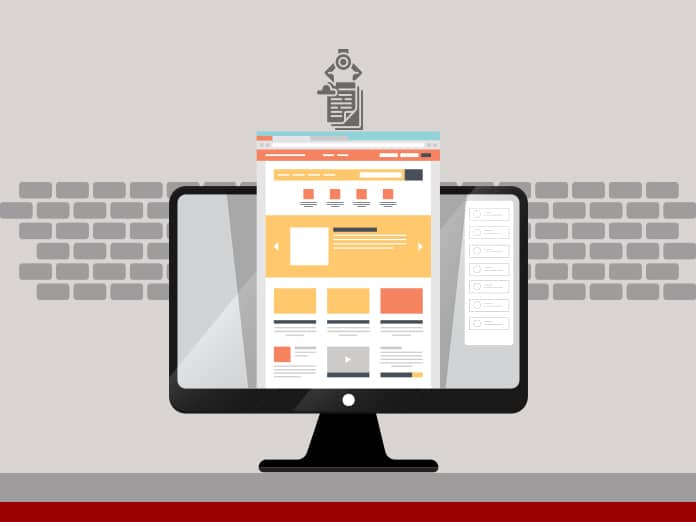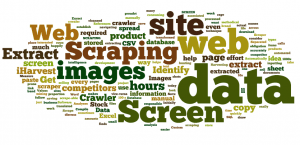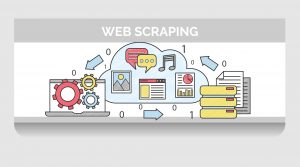There’s a massive amount of unstructured data on the web. This data explosion creates tremendous opportunities for businesses that are capable of collecting, processing, and analyzing this data. Web scraping is an effortless way to extract the data. Web data is used in a range of sectors such as e-commerce, recruiting, sales and marketing, etc. For a person with no technological experience, hiring the right web scraping service can be a significant challenge.
Jump to Section
What Is Web Scraping?
Web scraping defines the extraction of data in terms of HTML code from the website. Scraping a website is related to software techniques from where you can run your software and extract the output. Scraping contains multiple varieties in web scraping because you can even scrape data from static or dynamic websites. Web scraping converts the unstructured data to structured data.
There are several web scraping service providers on the market. It may be challenging to select one according to your criteria, budget, and other priorities. Below are some questions that can help you determine between several web scraping service providers.

1. Is Data Scalable?
The web scraping service you select should be scalable and future-proof. This means that, as your data requirements continue to expand, the scraping service should not pause and slow you down. Your web scraping service provider should have ample resources and infrastructure to meet your future data needs, whether large or small.
2. Is the Pricing Transparent?
Look for a web scraping service provider with clear and easy-to-understand pricing. Very complex pricing models are always confusing and may even mean that they have hidden costs. It is easier to avoid these companies and to go with one that keeps their pricing strategies open and transparent. A good pricing structure can be understood at a glance. Ideally, the pricing strategy will help you estimate your future cost effortlessly. You may also go to providers that have a pay-as-you-go pricing model in which you pay only for the data you get, rather than charging separately for both large and small data requirements.
3. What if the Website Pattern Changes?
Websites that need to be scraped can also be subject to change. The changes can be cosmetic or often systemic, and the scraping service that you select should be one that takes care of these changes. The changes to the website would require that the scraper be updated accordingly. If the web scraping service doesn’t track these changes accurately, you may want to steer clear of them.
4. How Do They Deal With Anti-scraping Mechanisms?
Many websites have mechanisms in place to prevent the extraction of their data. A successful scraping service should have technology that can take care of these circumstances while respecting the target servers. You need to make sure that your scraping service provider is robust enough to deal with these roadblocks.
5. What Are the Formats of Data Delivery?
The first question will be, what formats/file forms do you want the data to be delivered in? If you want it in CSV format, choose a web scraping provider that provides data in CSV. It’s best to go with someone who can produce data in various formats so that you can still rely on them even when the requirements change.
6. How Does the Customer Support System Work?
Customer service is critical when dealing with petabytes of data that you may not be able to handle. You will also need prompt answers to your queries.
With excellent customer service in place, you don’t have to worry about anything going wrong once in a while. Customer support should be one of your top priorities when searching for the best web scraping service. Make sure your scraping service provider uses state-of-the-art customer support software so that you are not left with any unanswered questions.
7. How Do They Ensure Quality Data?
The data harvested from the web is usually unstructured and not in functional form unless the web scraping service provider has cleaned it up. In the end, how successful and organized it is will depend entirely on the efficiency of the organization you select. So you need to pick the service provider that takes care of cleaning up and turning junk data into usable and meaningful data. The accuracy of the final data is very critical because it will affect the research.
Conclusion
Before you search and contact any web scraping service providers, you need to write down all the parameters. This would help you to be precise about what data you need and where your data is available on the site, to illustrate with screenshots or videos all the steps required to retrieve the data.
Discuss all with the service provider about the data/software, inquire for any similar research that they have done before to make sure they can provide what you need.
Hire a company that has the relevant experience and has done similar work in the past, Custom web scraping is costly, particularly if you choose some big companies. Still, some small companies (mainly from Asia) can do it at a lower price. But never compromise on price, select a lesser-known business if you’re sure they can deliver.
Once you have selected the provider and obtained the data, review at least a few records manually to ensure sure the data is correct.
Data from the web will offer enormous value, and it’s hard to select the right service provider. We hope this article will help you employ the best web scraping service.
Feel free to share your thoughts in the comment section below.
Thank you for reading this blog post. Loginworks provides inexpensive data extraction services. If you need any help with your web scraping projects, please let us know, and we’ll be happy to help.
- Business Intelligence Vs Data Analytics: What’s the Difference? - December 10, 2020
- Effective Ways Data Analytics Helps Improve Business Growth - July 28, 2020
- How the Automotive Industry is Benefitting From Web Scraping - July 23, 2020



